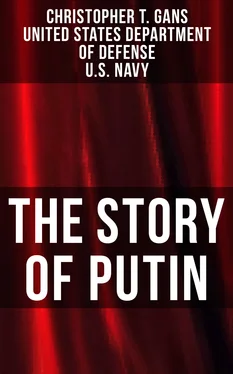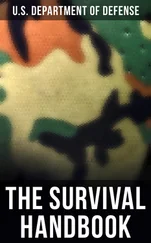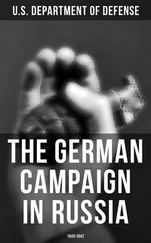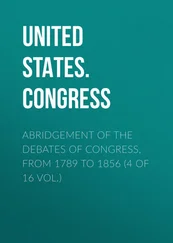Much of the recent global anti-Americanism has been attributed to recent U.S. actions and policy, like those within the Global War on Terror, Iraq, and economic globalization. Russian anti-Americanism can also be attributed to the Soviet past and the history of the anti-Imperialist/Western class struggle. Such an “old” form of anti-Americanism still underlies the “new” form anchored in hatred of current U.S. policies, global influence, and lifestyle. 3
According to the Levada Center, one of the pre-eminent organizations that has been gauging Russian public opinion since the late 1980s, vast majorities of people polled from 2003 through 2011 consider the United States to be an aggressor state seeking influence or outright control of other countries. During that same timeframe, large pluralities or even small majorities consistently rate relations between the United States and Russia positively with less than a majority, and often as low as 25%, believing the United States is inherently unfriendly or hostile toward the Russian Federation. 4Within such polling data, however, when observed over the course of several years, marked fluctuations underlying the overall summarizing numbers can be seen. Russian public opinion toward the United States, therefore, often oscillates as much as relations between the two states varies from “allies” to “friends” to “partners” to “colleagues” to “enemies” and back again.
1Fouad Ajami, “The Falseness of Anti-Americanism,” Foreign Policy , no. 138 (September — October 2003): 58, http://www.jstor.org/stable/3183656.
2Ole R. Holsti, To See Ourselves as Others See Us: How Publics Abroad View the United States after 9/11 (Ann Arbor: University of Michigan Press, 2008), 46.
3Eric Shiraev and Vladislav Zubok, Anti-Americanism in Russia from Stalin to Putin (New York: Palgrave, 2000), 2.
4“Russian Public Opinion 2010 — 2011” (Moscow: Levada Analytical Center, 2012), 276, 292, 293.
1. Putin’s Evolving Anti-Americanism
Table of Contents
Vladimir Putin himself has been the subject of much scholarly interpretation. Examples of Putin-era anti-Americanism are abounding, as are analyses about the underlying facets thereof. The roots of Putin’s personal antipathy toward the United States, according to some in the literature, merely represents a present day continuation of hostilities from the Cold War. Anti-Americanism was drilled into him as a former Soviet KGB agent, and such an underlying mentality did not change with the USSR’s collapse. Sarah Mendelson and Theodore Gerber attribute much of Putin’s positions and paranoia to Soviet-era thinking about Russia, the United States, and government. 1Others assign equal importance to current events in tracing modern Putinist anti-Americanism. Fyodor Lukyanov believes that Putin retains a grudge toward the United States for President George W. Bush’s alleged slighting of the Russian President during their first terms on issues from Iraq to NATO enlargement to unsuccessful repeal of the Jackson-Vanik trade restrictions. This pattern of slighting, therefore, is equally important to explaining the ongoing animosity. 2
Perhaps “it’s the foreign policy, stupid!” Anti-Americanism around the world is as much fueled by U.S. foreign policy actions as by any intrinsic or psychological cause, according to some scholars, eloquently summarized by Juan Cole. 3Putin’s anti-Americanism, therefore, could represent a common product of modern relations between two unequally powerful nations operating within the confines of the contemporary global environment.
1Sarah Mendelson and Theodore Gerber, “Us and Them: Anti-American Views of the Putin Generation,” The Washington Quarterly 31, no. 2 (2008), 132.
2Fyodor Lukyanov, “Why is Russia anti-American?” RT , February 24, 2012, http://lolo.rt.com/politics/columns/unpredictable-world-foreign-lukyanov/russia-usa-america-putin/.
3Juan Cole, “Anti-Americanism: It’s the Policies,” The American Historical Review 111, no. 4 (October 2006), 1089, http://www.jstor.org/stable/10.1086/ ahr.111.4.1120.
2. Putin’s Hybrid-Authoritarian Machine
Table of Contents
There remains a general consensus that Putinist Russia, while not a full-fledged authoritarian state, certainly is not a liberal democracy either. Russia operates as an authoritarian-democratic system, whether referred to as a “hybrid regime,” “electoral authoritarianism,” “competitive authoritarianism,” or even “overmanaged democracy.” Marie Mendras effectively sums up many writers’ interpretations in referencing “2-sided behavior” based on authoritarian political methods while claiming to be a democracy. Dmitri Trenin similarly calls Russia an authoritarian state with democratic institutions. 1Stephen Kotkin provides a great summation to this consensus about the general nature of Russian government and politics: “a ramshackle authoritarian system with some democratic trappings.” 2
Some attribute Putin’s power-base and hold on power with the elites in Russia, exemplified by the works of Karen Dawisha and Charles Clover. Dawisha asserts that the Putin inner circle of oligarchs and businessmen within the government have supplanted state interests with their own personal interests; Clover claims that the corrupted elites’ sway over Putin is based on their non-interference in politics in return for bi-lateral favors. 3Others consider the Russian public at large a significant power-base for Putin. Timothy Colton and Henry Hale argue that Putin does maintain a broad public appeal with the electorate, given that his election victories have not been based solely on fraud. 4Public polling for the duration of Putin’s time in power have borne witness to consistent majorities, often as high as 70% favorability ratings for the strong-man. 5Whether beholden to the societal elites, the public, or both, Putin’s grip on power does remain partially contingent on the acquiescence of these segments of society. A politician that must still appeal to his populace needs to demonstrate some level of commonality with that populace: shared goals, values, beliefs, etc. Anti-Americanism represents an easy way to show commonality with an electorate at risk of becoming disenchanted with Putin’s authoritarian revival. Putin can thereby garner the domestic political benefit of their support.
Whatever Putin’s government and political system is called and regardless of how secure his position is deemed to be, the system he runs depends on him. Regardless of the metaphor employed, Putin is the key, the lynchpin, the apex (etc.) of the current Russian political organism. Because the structure relies on his “manual control,” there is a consensus that his absence or departure would make the system’s survival tenuous. 6
1Dmitri Trenin, Post-Imperium: A Eurasian Story (Washington DC: Carnegie Endowment for International Peace, 2011), 72.
2Stephen Kotkin, “Russia under Putin: Toward Democracy or Dictatorship?,” Foreign Policy Research Institute, March 2007, http://www.fpri.org/enotes/200703.kotkin.russiademocracydictatorship.html.
3Karen Dawisha, “Is Russia’s Foreign Policy that of a Corporatist-Klepotocratic Regime?,” Post-Soviet Affairs 27, no. 4 (2011), 332; Charles Clover, “Who Runs Russia?,” Financial Times , December 16, 2011, http://www.ft.com/intl/cms/s/2/ b4b5a2aa-26cb-11e1–9ed3–00144feabdc0.html.
4Timothy Colton and Henry E. Hale, “The Putin Vote: Presidential Electorates in a Hybrid Regime,” Slavic Review 68, no. 3 (Fall 2009): 502, http://www.jstor.org/stable/25621652.
5“Russian Public Opinion 2010 — 2011” (Moscow: Levada Analytical Center, 2012), 11.
Читать дальше












